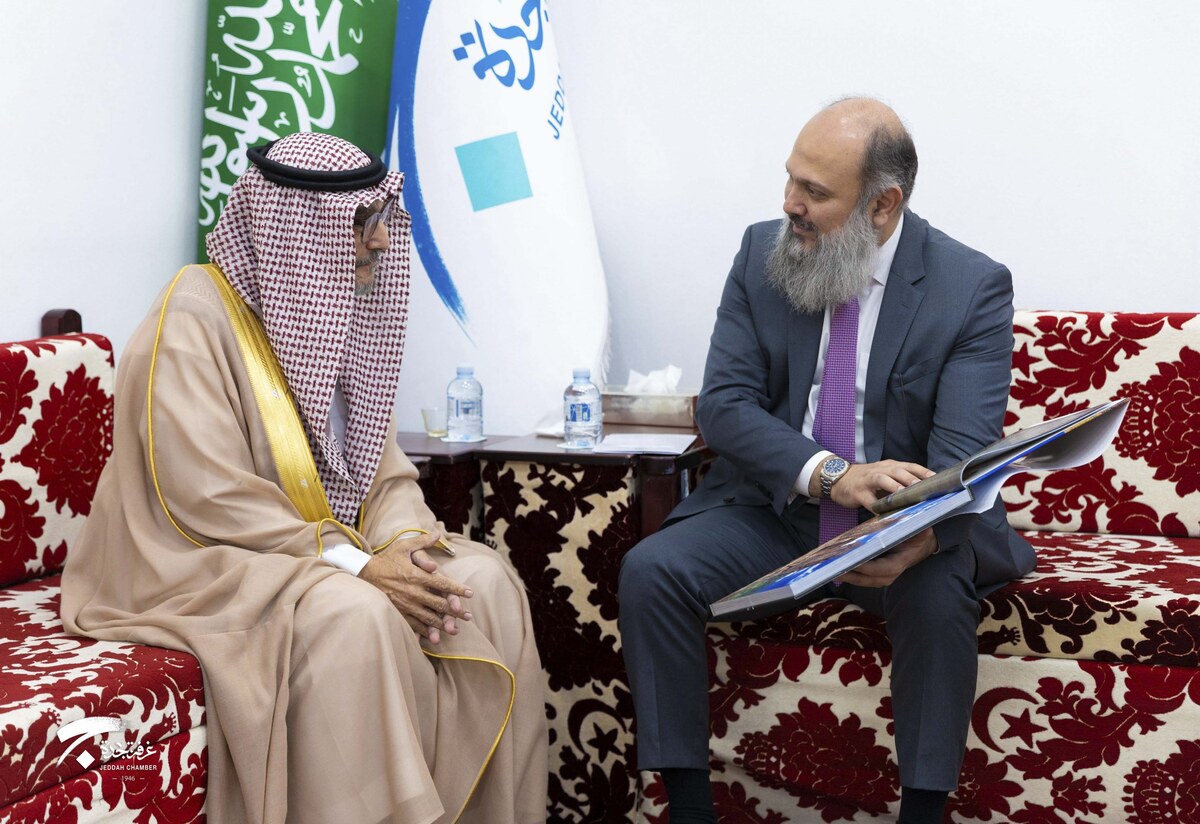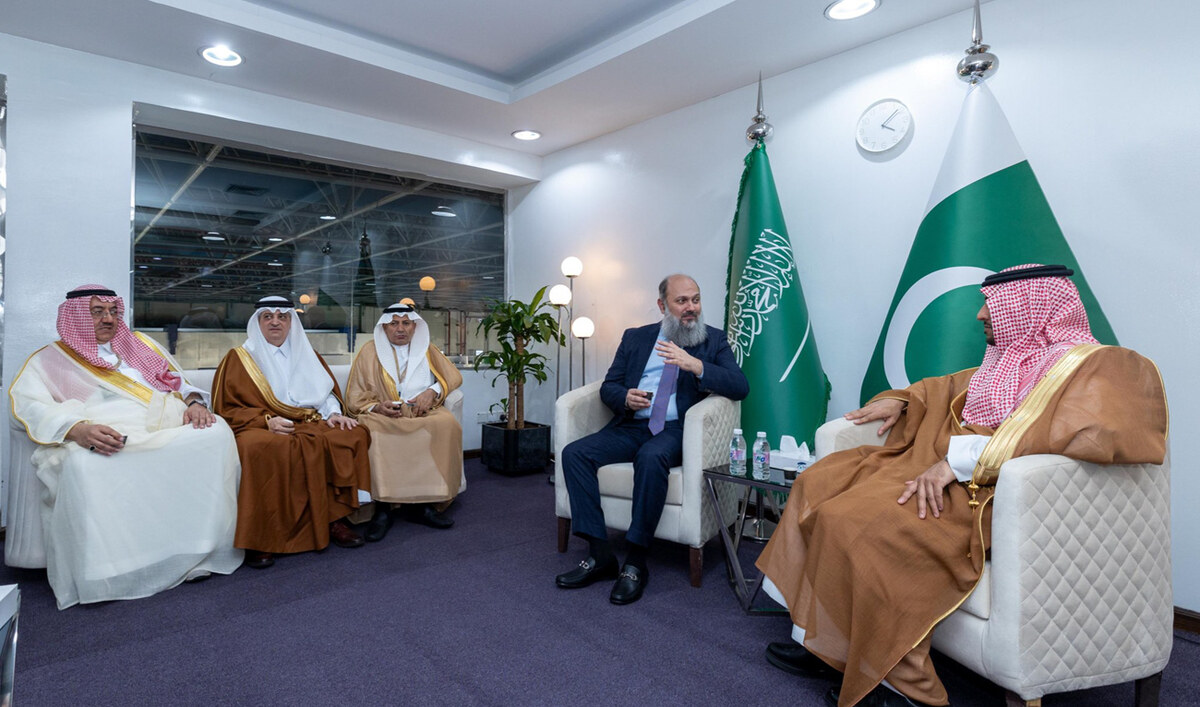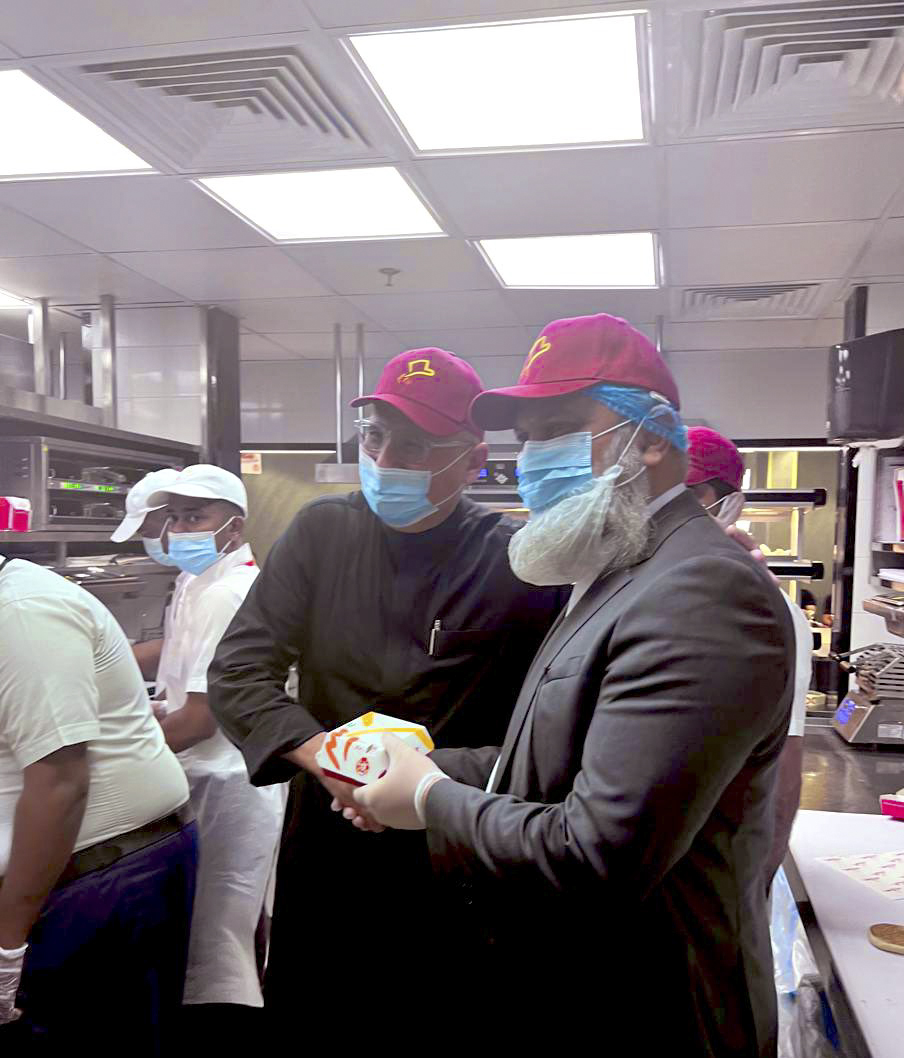ISLAMABAD: Pakistan’s Commerce Minister Jam Kamal Khan has engaged in a series of high-profile meetings in Jeddah and invited leading Saudi businesspersons to explore investment opportunities in Pakistan’s energy, agriculture, information technology (IT), health care, infrastructure and consumer goods sectors, the Pakistani government said on Saturday.
The discussions were held during the first-ever “Made in Pakistan” exhibition, held in Jeddah on Feb. 5-7, which focused on business collaborations, investment opportunities and Saudi brands entering the Pakistani market.
In a key meeting with prominent Saudi businessmen, Khan highlighted growth in Pakistan’s exports to Saudi Arabia by 22 percent to $700 million last year, assuring Saudi investors of a business-friendly environment with tax exemptions, investor protection laws, and access to a 240-million-strong consumer market.
“Saudi business leaders expressed keen interest in collaborating with Pakistani counterparts, particularly in construction materials, textiles, and food industries,” the Pakistani government’s Press Information Department (PID) said in a statement.

Jeddah Chamber Chairman Muhammad Yusuf Naghi gestures during a meeting with Pakistan Minister of Commerce Jam Kamal Khan (2R) in Jeddah on February 6, 2025. (Photo courtesy: X/@JeddahChamber)
“Several proposals were discussed to enhance trade partnerships and industrial investment, with the minister extending an invitation for them to visit Pakistan and participate in trade exhibitions like TEXPO, Food-AG, and the Healthcare & Mineral Show.”
The discussions touched on Pakistan’s recent ease-of-doing-business initiatives, including Pakistan Single Window (PSW) and the National Compliance Center, aimed at streamlining trade regulations and enhancing export standards.

Pakistan Minister of Commerce Jam Kamal Khan (2R) gestures during a meeting Abdul Aziz Omar Alsakran, deputy governor of international relations in foreign trade authority, and the Council of Saudi Chambers Chairperson Hassan Moejeb Alhwaizy and other delegates in Jeddah on February 6, 2025. (Photo courtesy: X/@jam_kamal)
Saudi Arabia presents a key export opportunity for Pakistani businesses, given its strong consumer demand, large expatriate workforce and ambitious Vision 2030 economic reforms that emphasize diversification and foreign investments.
Pakistan has sought to strengthen business-to-business (B2B) ties with the Kingdom, with both sides announcing during Prime Minister Shehbaz Sharif’s visit to Riyadh last October that they had signed 34 memorandums of understanding and agreements worth $2.8 billion to enhance private sector collaboration and commercial partnerships.
Pakistan’s trade volume with Saudi Arabia reached $5203.19 million in fiscal year 2023-24, marking an increase from $5010.47 million in the previous year, according to the Pakistani mission in Riyadh. Khan said Pakistanis living in the Kingdom sent a total of $7.4 billion in remittances to the South Asian country in the last fiscal year.
A major highlight of Khan’s visit was his meeting with Rami Abu Ghazala, the owner of Saudi food chain Albaik which is set to make a debut in Pakistan after signing a Memorandum of Understanding (MoU) in Oct. last year. The minister was given a tour of Albaik’s operations, where he met Pakistani employees working at the fast-food giant.

Pakistan Minister of Commerce Jam Kamal Khan (R) gestures with Rami Abu Ghazalah, CEO and co-owner of Saudi fast food chain AlBaik, during a visit to an outlet in Jeddah on February 7, 2025. (Photo courtesy: X/@jam_kamal)
“During the discussions, Albaik confirmed its expansion into Pakistan, stating that the process is in its final stages following the signing of an MOU,” the PID said.
“The first Albaik branches in Pakistan are expected to open soon, creating new job opportunities and strengthening economic ties between the two nations.”
In another significant meeting, Khan met with Pakistani investors and business leaders based in Jeddah. He said that 1.7 million Pakistanis traveled to Saudi Arabia in the past five years, making it the top destination for Pakistani emigrants.
Khan noted that the Pakistan Investor Forum, recently established in Jeddah, was playing a key role in guiding new market entrants and fostering Pakistani-Saudi business collaborations.

















